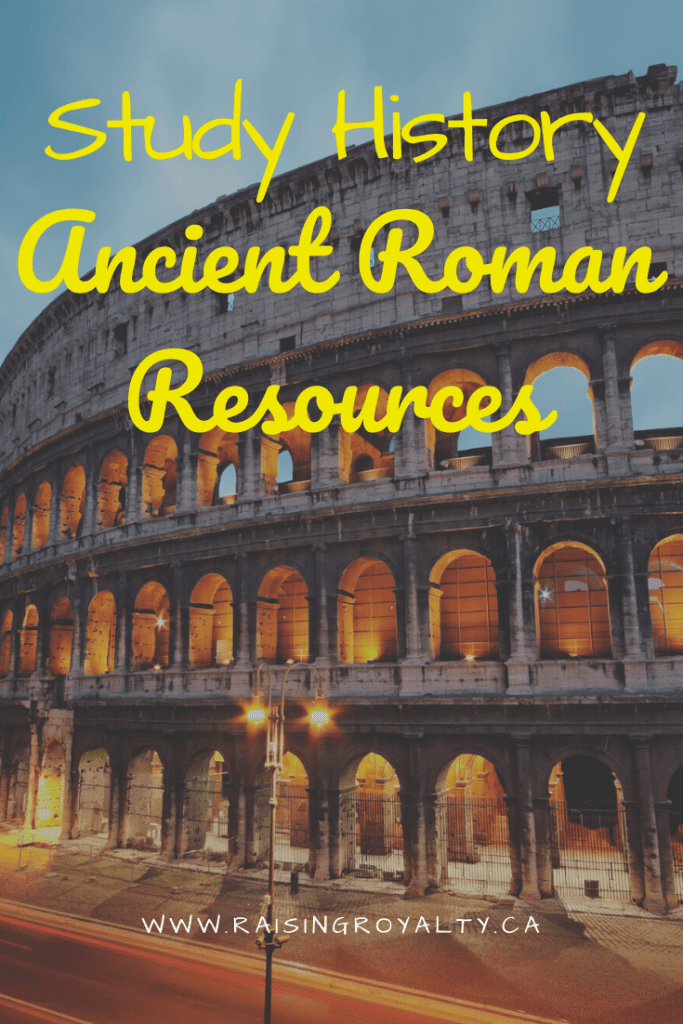
Studying Ancient Rome is part of every Western history education. The Ancient Roman world shaped our very culture, so when we study ancient Rome, it’s like we’re studying ourselves. The foundations of our government, social institutions, education, law, military and money are rooted in the ancient Roman life. So I’ve put together my list of the Ancient Roman history resources we used in our homeschool.
The ancient Roman culture spanned millenia. From its beginnings as a city-state with a king in 700s BC, to it’s final breath in 1453 AD, the Roman empire influenced the entire world. At its height, the Roman empire covered or touched almost the entire known world. Today, Rome, as a city, still bears the relics of its ancient past, and new Roman-era discoveries are made every day across Europe, the Middle East and northern Africa.
The Roman history resources:
As I’ve said repeatedly, I love using living books to study history. And reading the stories of ancient Rome is both eerily similar to our own time, and yet, strange and exciting. We can see ourselves in the Roman citizens, arguing about politics in the cafes, watching violent sports and cheering their heros in the stadiums, and shopping for the world’s products in a local marketplace. But at the same time, the elements of brutality and bloodshed, the pagan temples and gods, and the open cesspools of humanity seem repulsive.
Picture books:
Picture books offer an easy-access way for even young children to be able to study history. For the Romans, the mythology gives us a look into the beliefs and values of the culture, while providing some fun fantasy elements too. So here are a few of our favorite stories based in Roman history.
- G is for Gladiator: An Ancient Rome Alphabet – Debbie Shoulders
- The Roman Twins – Roy Gerrard
- Cleo and Cornelius: A Tale of Two Cities and Two Kitties – Elizabeth Nicholson
- Brave Cloelia – Jane Curry
- Escape from Pompeii – Christina Balit
- Why Are You Calling Me Barbarian? – Birgitta Petren
- Ricky’s Dream Trip to Ancient Rome – William Stevenson
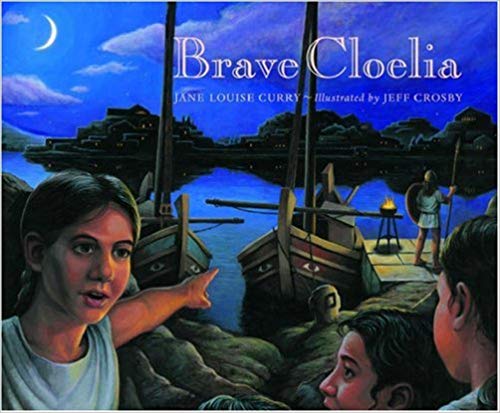
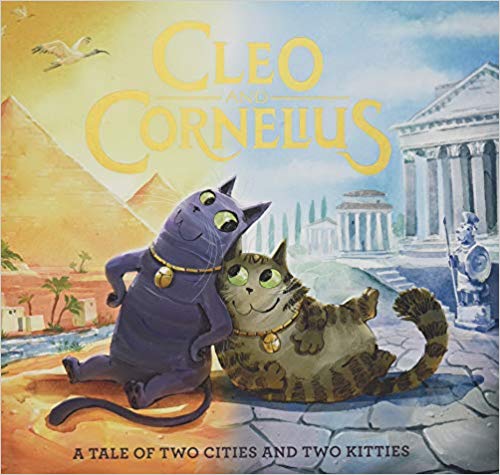
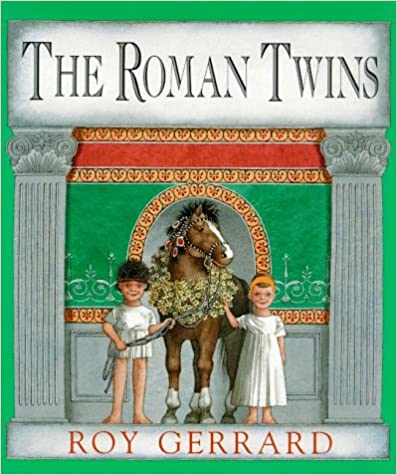
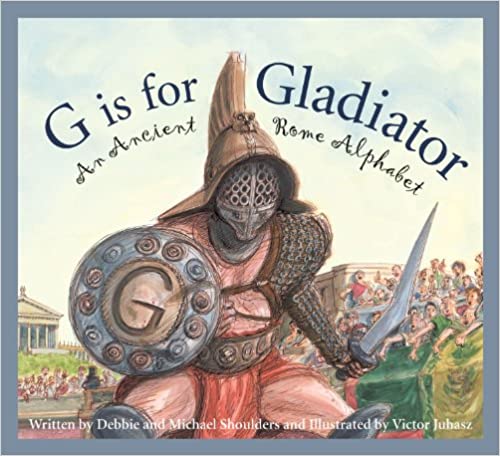
Read-aloud or Chapter Books:
Ancient Roman history resources provide a unique insight into our own society. The Ancient Roman culture is surprisingly much like our own. So these historical fiction stories will have themes and situations that all of us can relate to. Try these read-alouds with your kids — or let them read them for themselves!
- Tiger, Tiger – Lynne Reid Banks
- The Roman Mysteries Collection ( he Thieves of Ostia, The Secrets of Vesuvius, The Pirates of Pompeii, The Assassins of Rome, The Dolphins of Laurentum, The Twelve Tasks of Flavia Gemini) – Caroline Lawrence
- The Eagle of the Ninth Chronicles – Rosemary Sutcliff
- The Roman Conspiracy – Jack Mitchell
- Minna’s Quest – K. M. Peyton
- Clottus and the Ghostly Gladiator – Ann Jungman
- Gladiators Never Blink – Nick Warburton
- Roman Diary: The Journal of Iliona, A Young Slave – Richard Platt
- Road To Rebellion: A Tale Of Ancient Rome – Holly Grace Eberhard
- Catligula – Robin Price
- The Bronze Bow – Elizabeth George Speare
- The Ides of April – Mary Ray
- The Ancient Ocean Blues – Jack Mitchell
- Detectives in Togas – Henry Winterfeld
- Roman Tales: The Fatal Fire – Terry Deary
- Mark of the Thief – Jennifer A. Nielson
- Miranda the Great – Eleanor Estes
- Mystery of the Roman Ransom – Henry Winterfeld
- Most Wanted – Kate Thompson
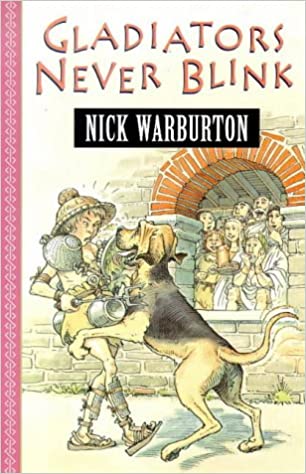
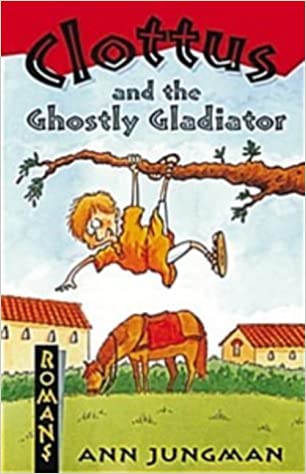
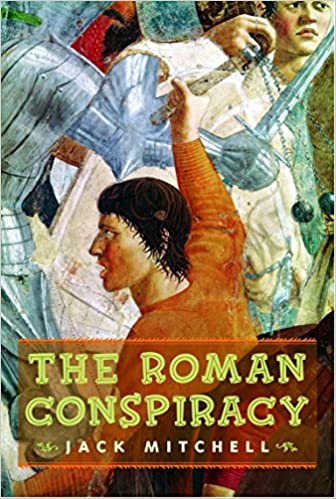
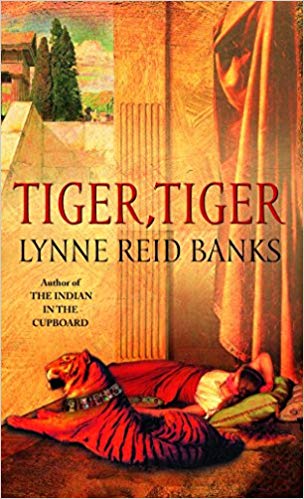
Graphic Novels:
Ancient Rome stories lend themselves really well to comic-book style stories. There’s tons of action, drama, cool costumes and iconic backgrounds that visually capture the spirit of Roman society. Check out these fun books:
- Julius Zebra: Rumble with the Romans! – Gary Northfield
- Escape from Pompeii: An Isabel Soto Archaeology Adventure – Terry Lee Collins
- Asterix the Gaul: Album #1 – Rene Goscinny
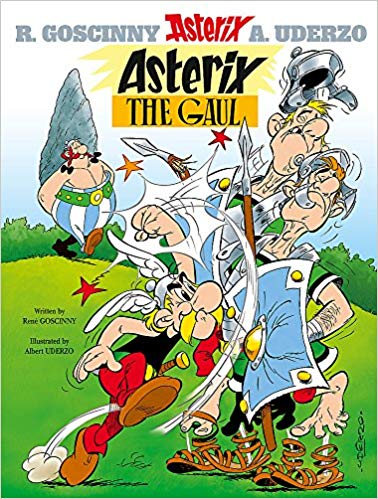
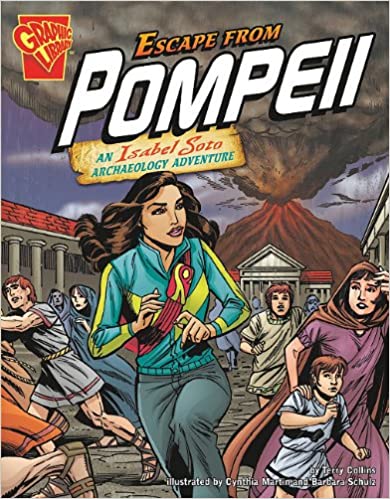
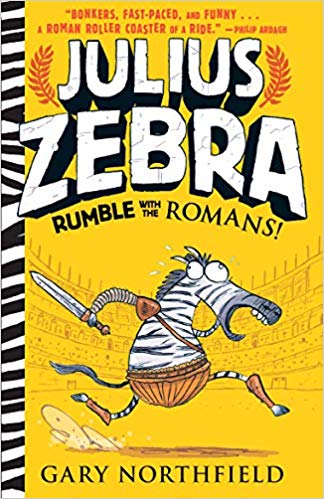
For non-fiction & informative reading:
Some of my favorite non-fiction series are the DK Eyewitness, and the “You Wouldn’t Want to be… ” series. Roman history is one of the most popular history topics so there are tons of Ancient Roman history resources out there. Here are some of the resources we’ve found most helpful.
- Ancient Rome – Judith Simpson
- The Roman Record – Paul Dowswell
- The Usborne Internet-linked Encyclopedia of the Roman World – Fiona Chandler
- Roman Britain – Ruth Brocklehurst
- Usborne Romans – Anthony Marks
- You Wouldn’t Want to be a Roman Gladiator – John Malam
- Life in Ancient Rome – Shilpa Mehta-Jones
- The Ancient Roman World – Ronald Mellor
- The Buried City of Pompei – Shelley Tanaka
- DK Eyewitness Ancient Rome – Simon James
- You Wouldn’t Want to Be a Roman Soldier – David Stewart
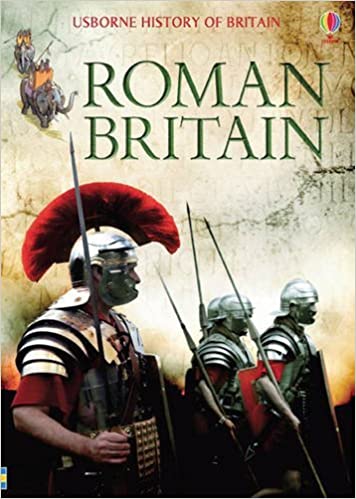
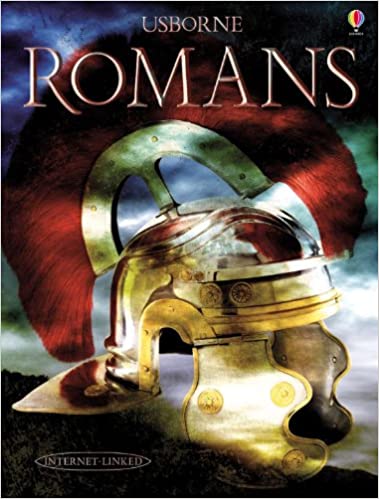
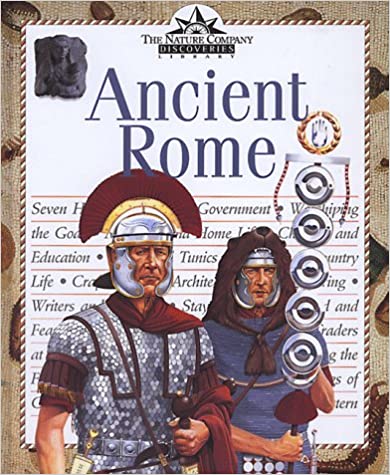
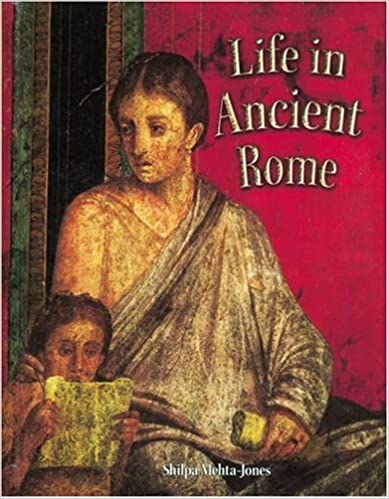
Multimedia options
Roman archaeology has been ongoing since the days Rome’s existance! The Roman world stretches for a thousand years, so by the end of the empire, the beginnings were already being excavated and studied. Today, we’re still finding ancient Roman villas, mosaics, coins and artifacts throughout Europe, northern Africa, and the Middle East.
Here are a couple of the more interesting documentaries we’ve watched.
Activities you can do:
These lapbooks and unit studies make fantastic activities to help guide your learning:
- Ancient Rome Lapbook
- Heirs of the Roman Empire Lapbook
- Roman Ruler: Julius Caesar Lapbook
- Gladiators Lapbook
- The Ancient City of Pompei Lapbook
- Ancient Rome Study Guide
- Free Worksheets from Student Handouts
Other Ancient Roman History Resources:
Here are some interactive websites that will help you and your kids learn more about Ancient Rome:
- Ancient Rome for Kids
- Mr. Donn’s Ancient History (for teachers & for kids) ** one of our favorite sites for kid-friendly history!!**
- Social Studies for Kids: Ancient Rome
- Virtual Field trip to Rome
- No Romans! an online flash game
Plus don’t forget to go to a museum and see Ancient Roman artifacts for yourselves! Ancient Roman history resources are common, but not often displayed, so take advantage if you can.
You may also like:
Egyptian History
Mesopotamian History
Chinese History
Aztec, Mayan & Incan History
What’s your favorite way to study history? Do you prefer to watch it, read about it, or get hands-on?
